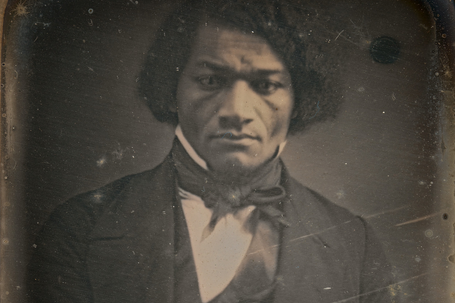This module is for

Frederick Douglass used photography to establish his identity as a credible abolitionist, and to challenge racist imagery of African Americans.
Credit: Frederick Douglass, 1850, National Portrait Gallery, Smithsonian Institution
Identity
What is identity?
Identity is what makes you who you are. While that may sound simple, the concept of identity is quite complex. We learn about who we are through interactions with our family, peers, institutions, media, and other encounters in our everyday lives.
Your identity consists of multiple qualities, characteristics, and beliefs. Expand the labels below to learn about different dimensions of identity.
Identity is influenced by society and history. Part of understanding identity is understanding how someone fits or doesn’t fit into other groups. To understand identity, you must also be aware that not all groups are treated equally in society.
”If I didn’t define myself, I would be crunched into other people’s fantasies for me and eaten alive.”
- Audre Lorde
Asking questions broadens your knowledge and fuels your curiosity. Inquiry is necessary for learning to take place. It helps you to remember and make personal connections with the topics you learn about.
Watch the following video clip about world-renowned poet Audre Lorde and the intersectionality of her identity. Intersectionality is a term used to describe how multiple aspects of our identities—race, ethnicity, gender, sexual orientation, religion, age, and ability—come together and, as a result, influence how we are treated in society.
As you watch the video, think about the different dimensions of Lorde’s identity and the social and historical circumstances that influenced who she was.
Consider what you learned about Audre Lorde and the factors that shaped her identity.
Answer the following questions. Click the arrow to advance to the next question.
Audre Lorde's poems, essays, speeches, and activism, have contributed to our understanding of racial justice, feminism, gender, and sexuality today.
Continue on to the next page to examine your own identity.





